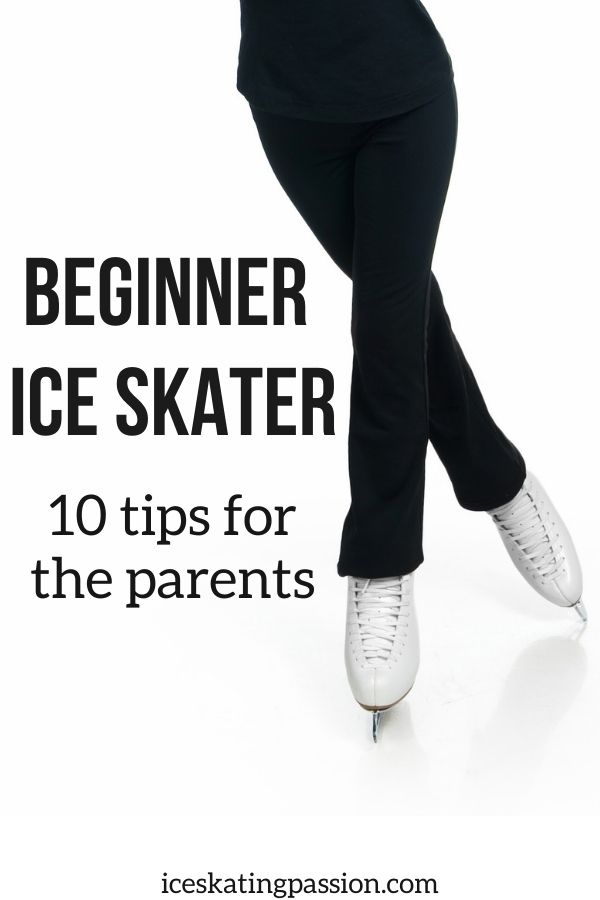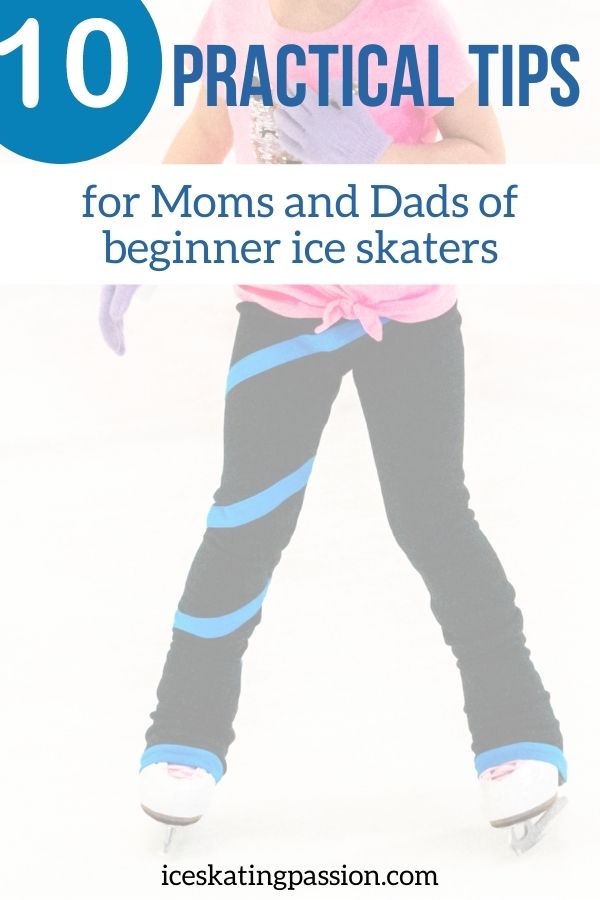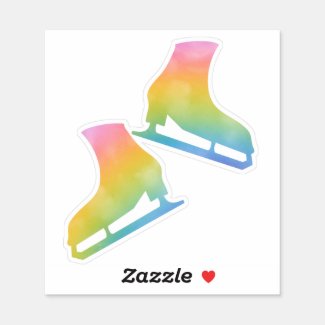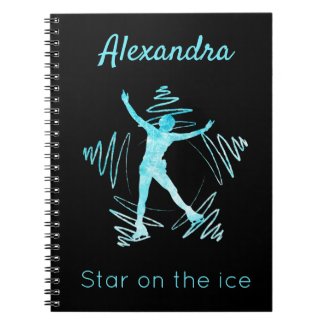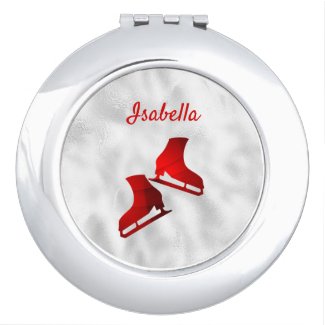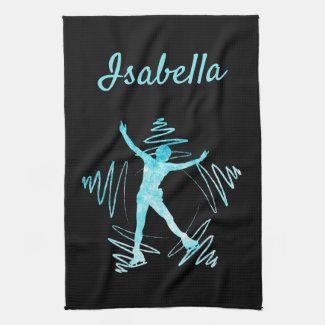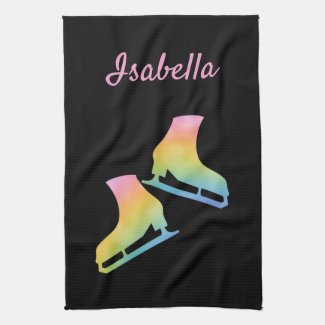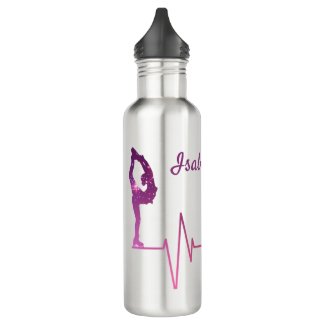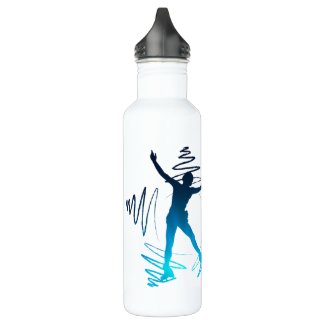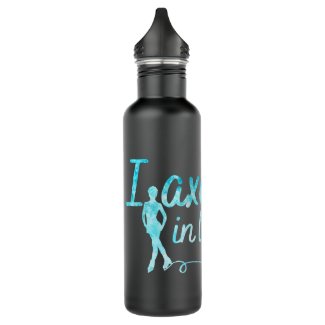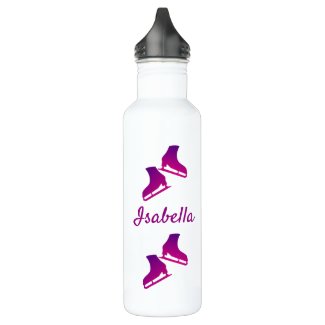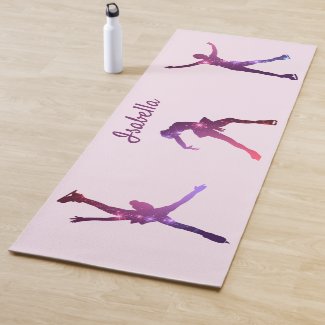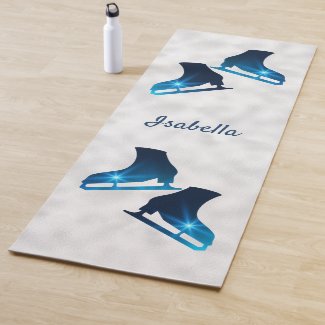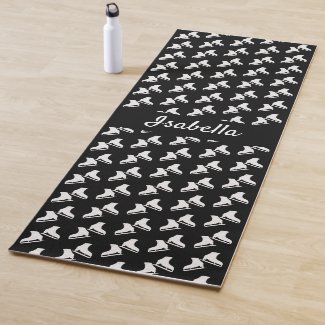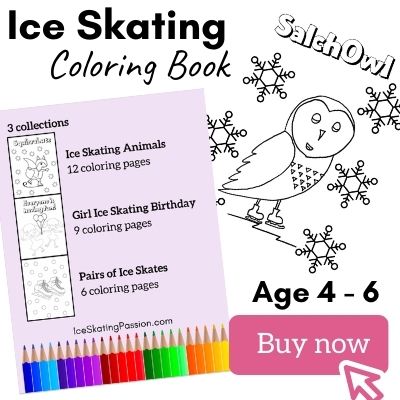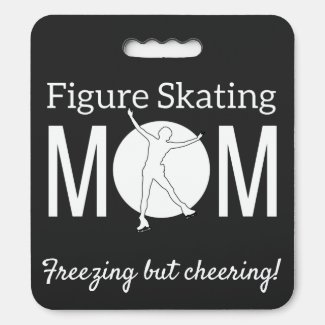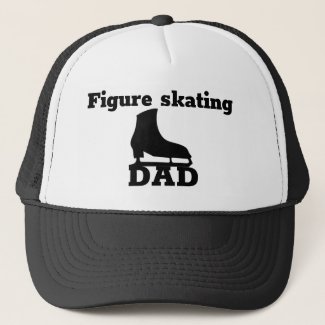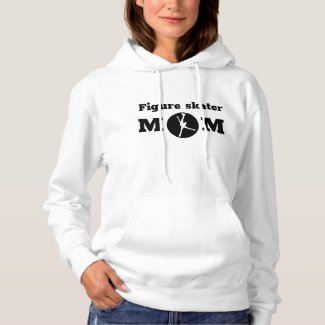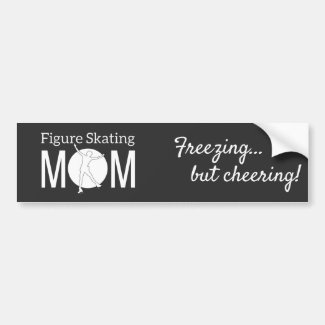Discovering the world of figure skating can feel overwhelming. Take a deep breath, below are 10 tips for ice skating moms and dads to help you take your first steps into this new environment.
Note - this is an article for beginner ice skaters. If you are looking for figure skating parent tips when the skater starts competition, check out my other article.
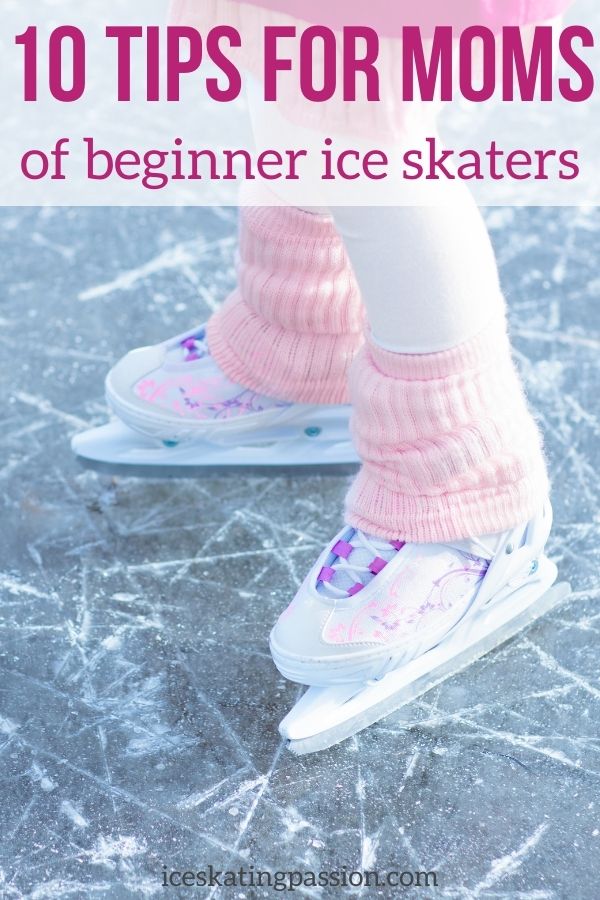
This article contains affiliate links. If you purchase using my link, I get a commission at no extra cost to you (learn more).
#1 - Ice skating moms or dads: Book lessons
Why book lessons
If you yourself cannot skate properly or are self learnt, i.e. not well-versed on technical aspects, you must consider professional training for your child.
To start with the right basis and not take bad forms or habits from the start, lessons are a must.
You can get your kid a private tutor or encourage him/her to join group classes where kids generally make friends and stay motivated as well.
Most classes have play-way training methods, and the entertainment adds on to finesse in applying the techniques.
Which figure skating sport to choose?
Figure skating is a varied sport with different things to do for different personalities and you can pick one according to your child’s preferences.
The basic choices for beginners are Figure Skating or Ice Dance (Synchronized skaters and ice ballet dancers are taken from those 2).
- If the club has common classes for beginners, then you start there
- If the sports are separated from beginner level: Choose figure skating for a more acrobatic child who loves jumping around - or choose ice dance for a less daredevil child who enjoys self-expression and dancing.
Figure Skating is an acrobatic sport, and Ice Dance is more inclined towards the dance element for self-expression.
See the Main differences in this article.
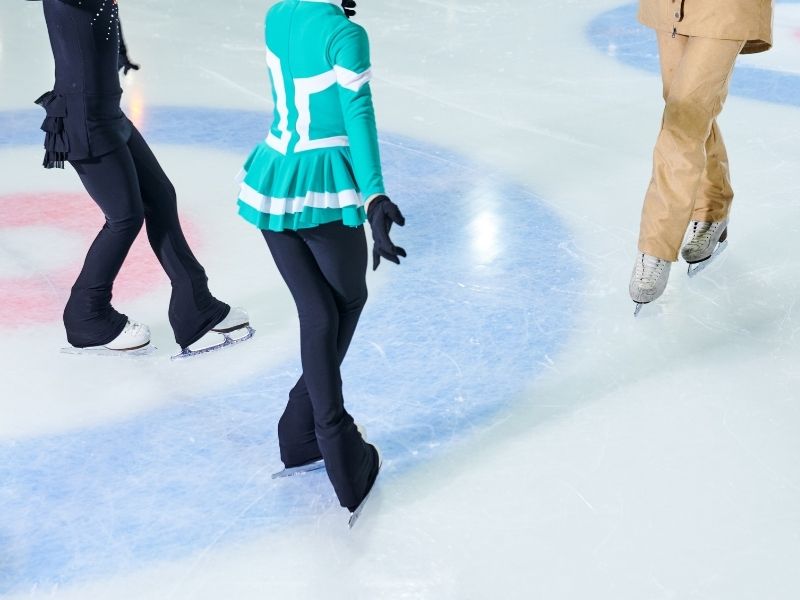
Best age to start
You can start at any age and have a lot of fun.
Any kid who can walk can also skate. However, lessons normally start from 4 years old.
Learn more about the best age for ice skating in this article, and you can learn more about figure skating levels and ages here.
#2 - Send your kid to lessons with proper equipment
For the lessons to be fruitful from day 1, the kids must have proper gear. Here is a checklist:
- Thin socks – NO THICK SOCKS as they must be able to feel the positions on their feet. They will be more in control of the moves.
- Warm clothes – Go for something warm yet light-weight so that there is no bulk. No ski pants and avoid jeans as well.
- Gloves – Their hands must be warm and safe if they fall on the ice while skating. See best options
- Helmet – Most clubs do not allow kids to skate without a helmet on but it's also about how OK you and the kid are. We would recommend one for safety.
And tell your kid it is ok to fall. Falling is a part of skating.
Believe it or not, you want your child to fall several times on the first day so that they get used to it. It is an important step and getting back up is a useful life skill.
#3 - Learn to tie the skates (for when they are young)
Lacing and tying up the skate is important for anyone who is trying out figure skating. The kids need to understand that, just like they cannot run if their shoes aren’t tied properly, they can't skate if their skating shoes are not properly tied up. They can even get blisters and chafes if they are tied the wrong way.
The foot must be locked within the shoe on the skate in a natural position, in the right way. This makes sure the skates work efficiently. It also ensures that the skates wear well, have an extended life too. Ankle support is crucial. If the child falls, the ankle is vulnerable to twists and sprains and it can put them out of action for long.
As a parent, you can tie the skates if they are too young. Make sure the child is seated on a bench and you are standing in front of them with their foot raised to your thighs while tying – with this position, your back will thank you.
This is how you need to gauge if the skate is fitted properly.
- Check if the skate is loose in the toe box.
- The laces are firmly fitting when you check around the hooks and the instep portion is snug.
- The top of the skate has some room, i.e. not tight.
Learn more on my article about how to tie ice skates.
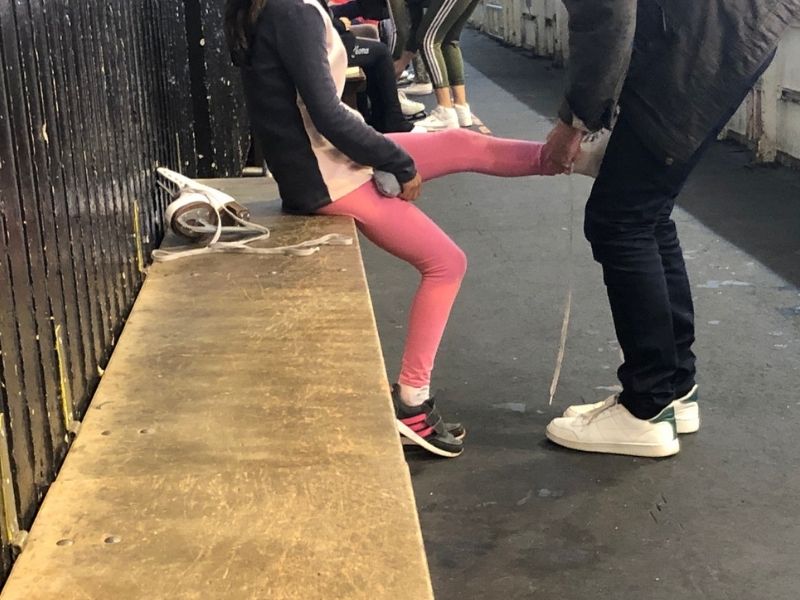
#4 - Ice skating mums should purchase good skates
There is not much point in buying skates straightaway for little children who have started recently, they can manage just fine on rental skates.
However, as soon as you know that your child likes the sport, you should buy a pair of skates. Rental skates can help only so much, as the wear and tear are high, and performance is quite low in these skates. You can follow this guide to buy your child their first pair:
- They must not be too big because figure skating requires a high degree of control. The fit must be exactly right, not too tight either. If the skates are fully loosened up and the foot is pushed forward, there must be one finger space between the heel and the shoe.
- The skates must not be from the adjustable variety as they are not very good for learning more technical figure skating moves.
- Check if the child is comfortable. For sport or even as a hobby, you don’t want your kid to be suffering in a poorly fitted skate. Check if the padding is present, if it is enough for the child to feel good in, and whether is it high density foam to protect their little feet.
- And don't forget to have them sharpened!
The Jackson brand is a solid well-known brand for beginners and intermediates.
#5 - Learn the basics but do not pretend to be a coach
Always let the child get into an enjoyment mode before you can make it a regular activity. But as the child learns and explores more about the sport, you should learn more too.
You can:
- Read about figure skating to understand better what moves your child is doing so that you can congratulate more precisely
- Learn yourself to skate - take a few lessons so you can understand the basics. And adult classes are often really fun!
However, don't pretend to be a coach. it creates frustration both for the kid and for the real coach!
Plus, I recommend you don't sit close to the rink. If parents are allowed to watch, you should sit away from the rink so that your child is not distracted trying to seek your approval.
And don't forget to say thank you to the coach - check out my ideas for figure skating coach gifts.
#6 - Teach your skater how to take care of the skates
Being a young and new skater or a seasoned one, all skaters and sportspeople must respect the equipment. This is something that should be taught from a young age.
You must teach the children these essential steps to take care of skates as they begin taking lessons and learning.
- The child must wear skate guards as soon as he/she leaves the ice. This helps protect the blades as even a tiny damage to the blade can prevent from skating properly (not provided with rental skates, but as soon as you purchase new ones, you should get skate guards).
- The child must learn to properly dry out the blades after each practice. This prevents rusting of the blades. You can make is more fun by offering your child a personalized towel especially for it. Check out my article about blade towels.
- The child must carry his skates in a bag with soakers to protect the blades, as the moisture on the blades can damage them.
- The child must remember to dry the skates out the moment he reaches home.
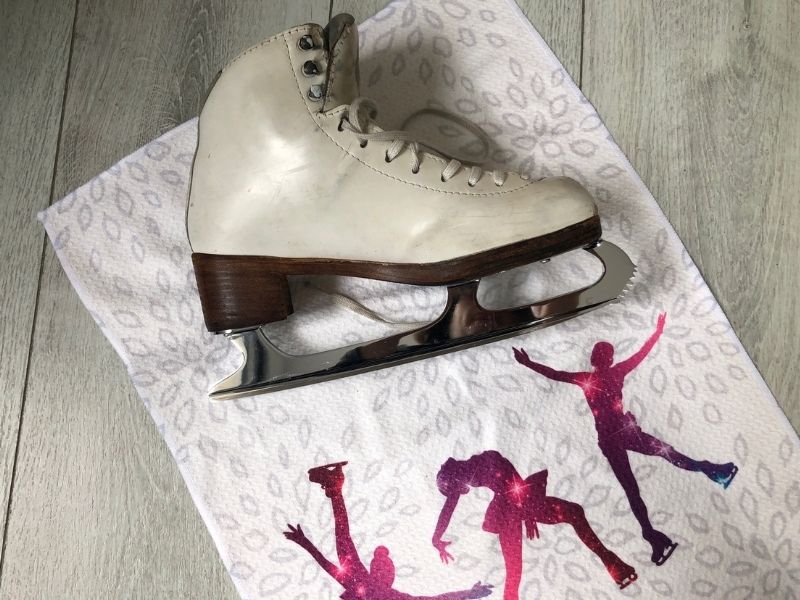
#7 - Make sure your child stays hydrated
For any sport, hydration is must. Always carry a bottle of water for the skater as it can be taxing for their little bodies.
Sometimes because it is cold and the child does not go fast, we don't realize the effort involved. But trust me it is a workout! Hydration is required. It is essential to avoid injuries.
Parents you must always bring/pack a nice bottle of water for the end of practice and make sure your kids hydrate.
Personalize your water bottle! See all my available designs and colors here.
#8 - Make sure your skater warms up and stretches
Warming up before and stretching after any activity should be an automatism. We are not taught this enough.
Sports is all about muscle performance, and this can increase, and injury be avoided if warm-up and stretching are done properly.
Make sure to do a few exercises with your kid:
Warm up with a few
- Squats,
- Rotations of the back,
- Rotation of the shoulders,
- Rotations of the neck
And Stretch especially:
- The thighs (there is a lot of ups and downs in ice skating)
- The calves
If you make it an automatism for your kid to do those things before and after a sport session, this is a huge win!
You can find my figure skating stretching routines in this article (for both warm-up and post-practice).
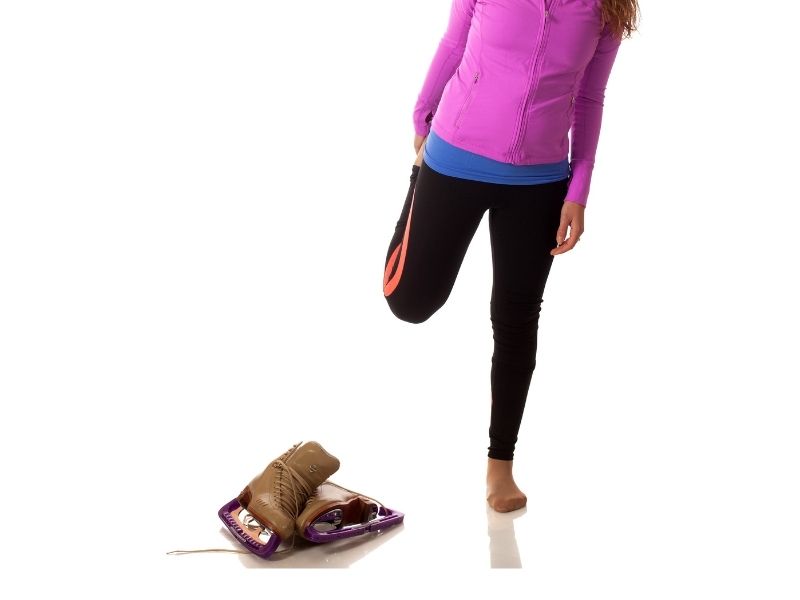
And you probably need a yoga mat to stretch and do core exercises. Make it fun with a personalized one! See all my available designs and colors here.
#9 - Check your skater's feet
Ice skates can be uncomfortable if they get sweaty and create friction. This can also lead to blisters and sore feet.
Make sure to:
- Check for and take care of the blisters.
- Change socks often and not use the same socks over and over again.
- Use socks without seams and reaching over the boot.
- Double-check how well the skates fit.
- Learn how to tie the skates in a better way.
- Ask the child’s coach for tips.
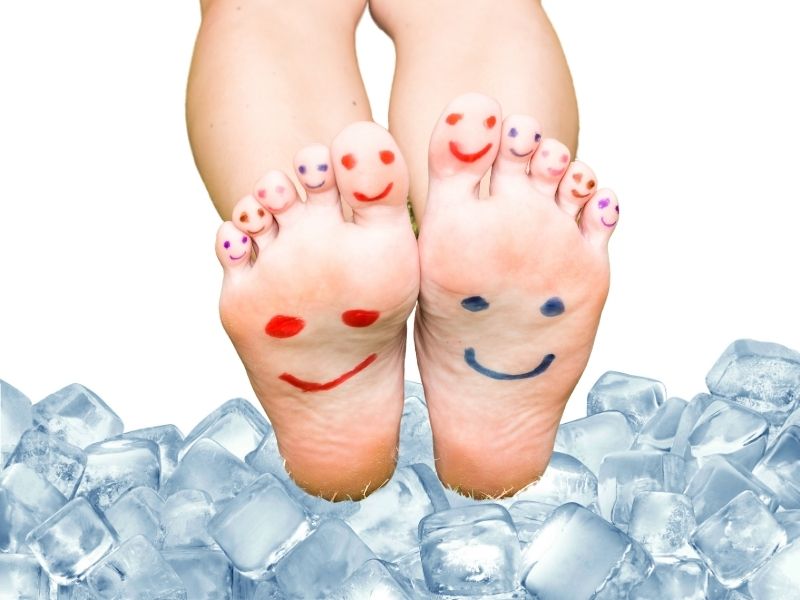
#10 - KEEP IT FUN! What to say and what not to say
Before it is a sport, ice skating should be fun. Don't be impatient and don't rush at the first fall.
Consider the following:
- Let them fall. Most of the time falling is mostly surprising more than it is painful and it is a part of the learning curve. Encourage them to get back up with a smile.
- Do not congratulate that they did not fall at all. This will induce shame if they fall. Normalize falling.
- Ask and make sure they had fun
- If you kid start crying a little, invent a story, make up a character and ask them to imagine if they were feeling like a penguin (for small children). However, if it is at each lesson, maybe this is not the right sport.
- Congratulate on a good move / good control.
Never force them. Let them be. If they are not okay even after a few sessions, maybe this sport is not for them. It is alright if it isn’t.
Extra tips for yourself
Now, we have talked a lot about your kid but not much about you.
Here are a few tips to consider in order to take care of yourself:
- Wear warm clothes - no need to try and be fancy - nice heels are not the most comfortable while waiting at the rink!
- Find other parents which are not too intense. Stay away from the politics of the club at the beginning.
- Depending on the quality of the stands at your rink, you may want to bring a seat cushion (see the example below)
- Watch your kid a little, but also take advantage of this time to do something for you - read a good book, listen to a podcast...
Surround yourself with your kid's passion!
You might also be interested in:
